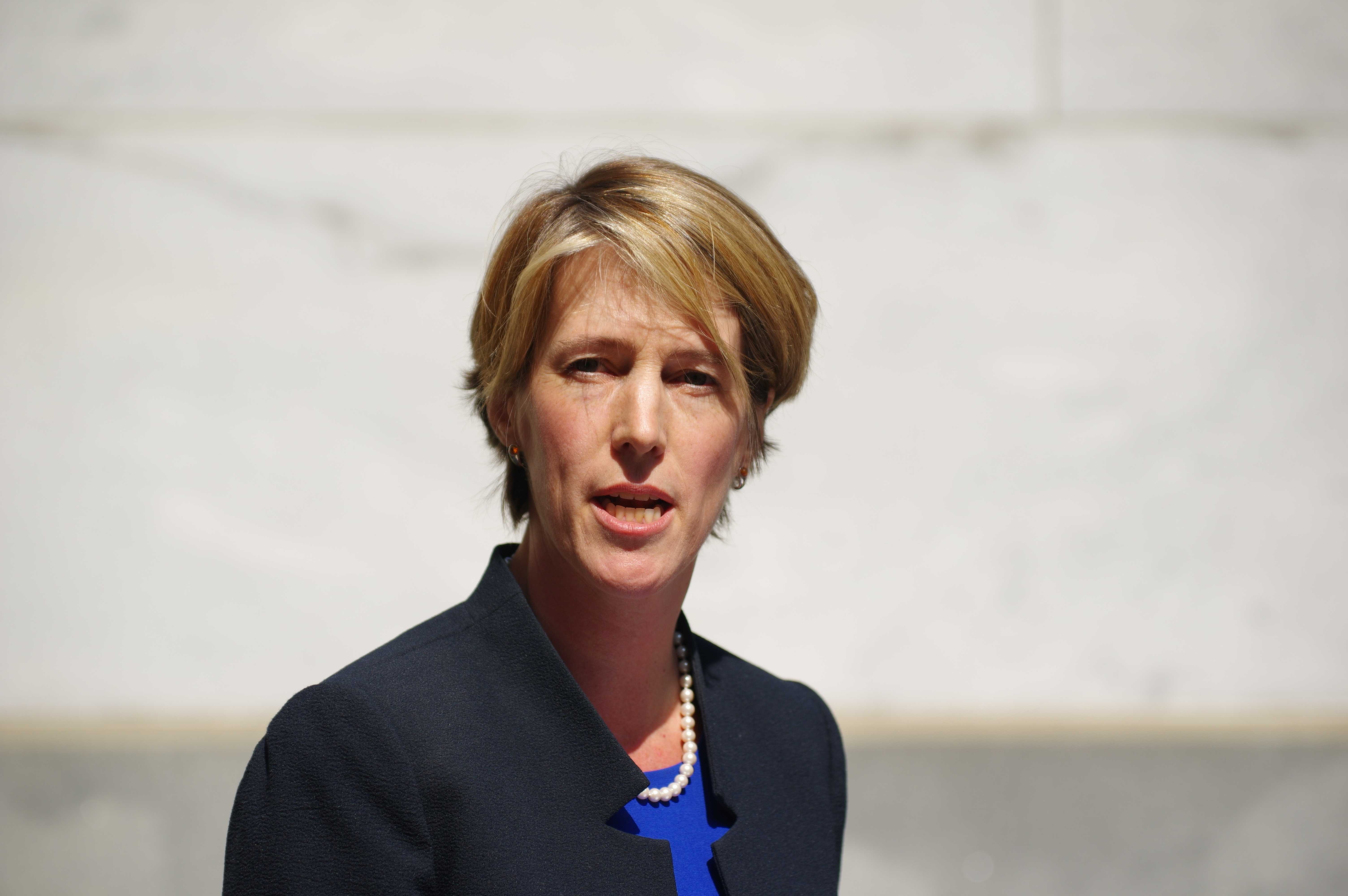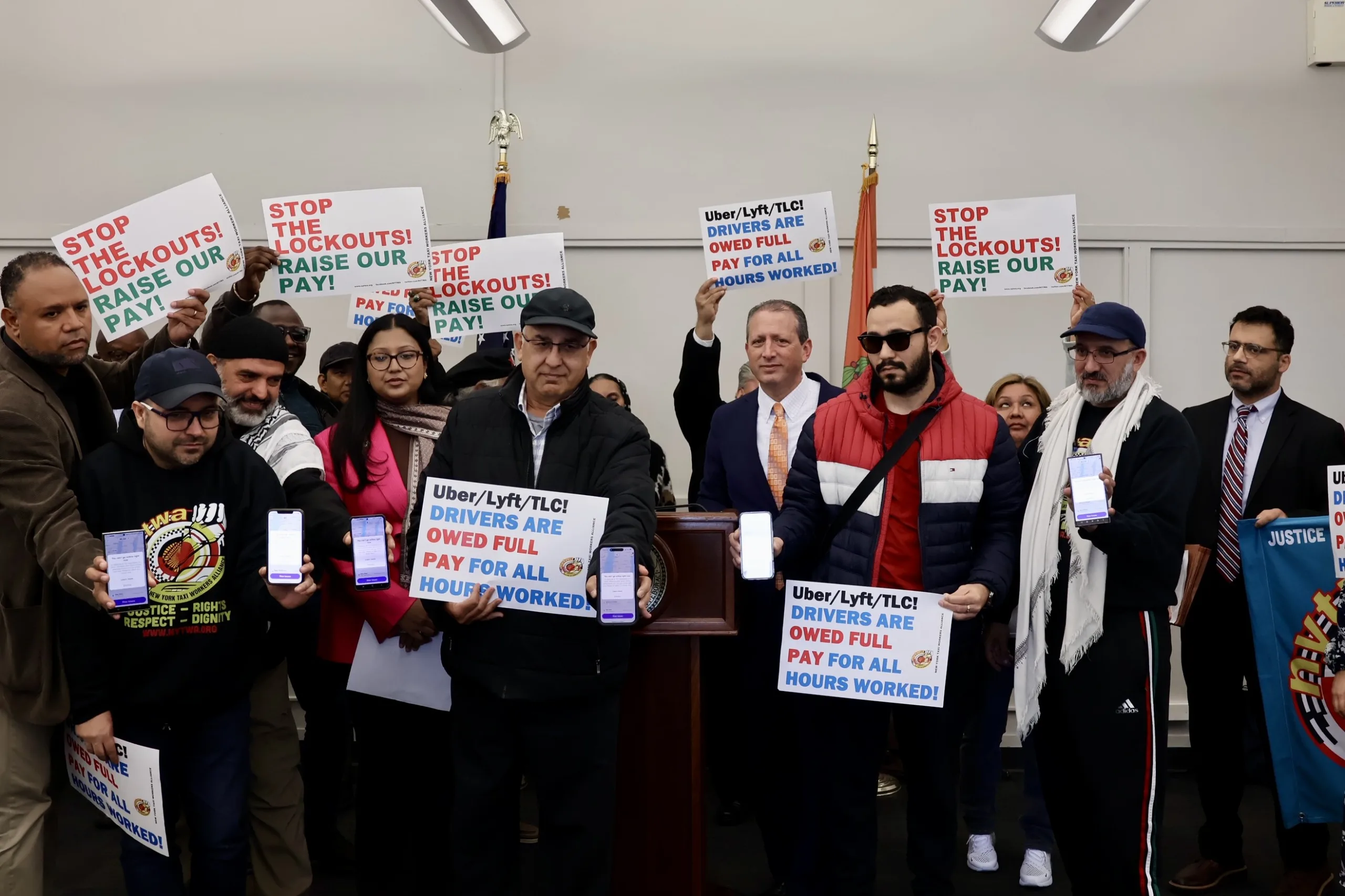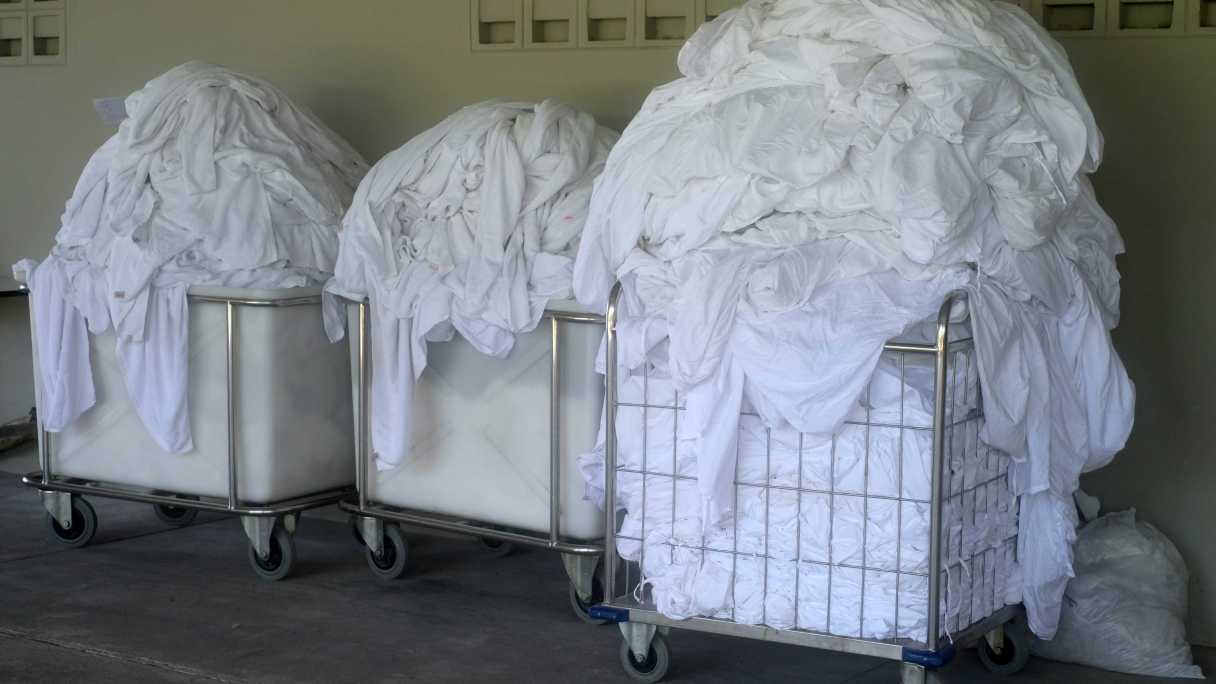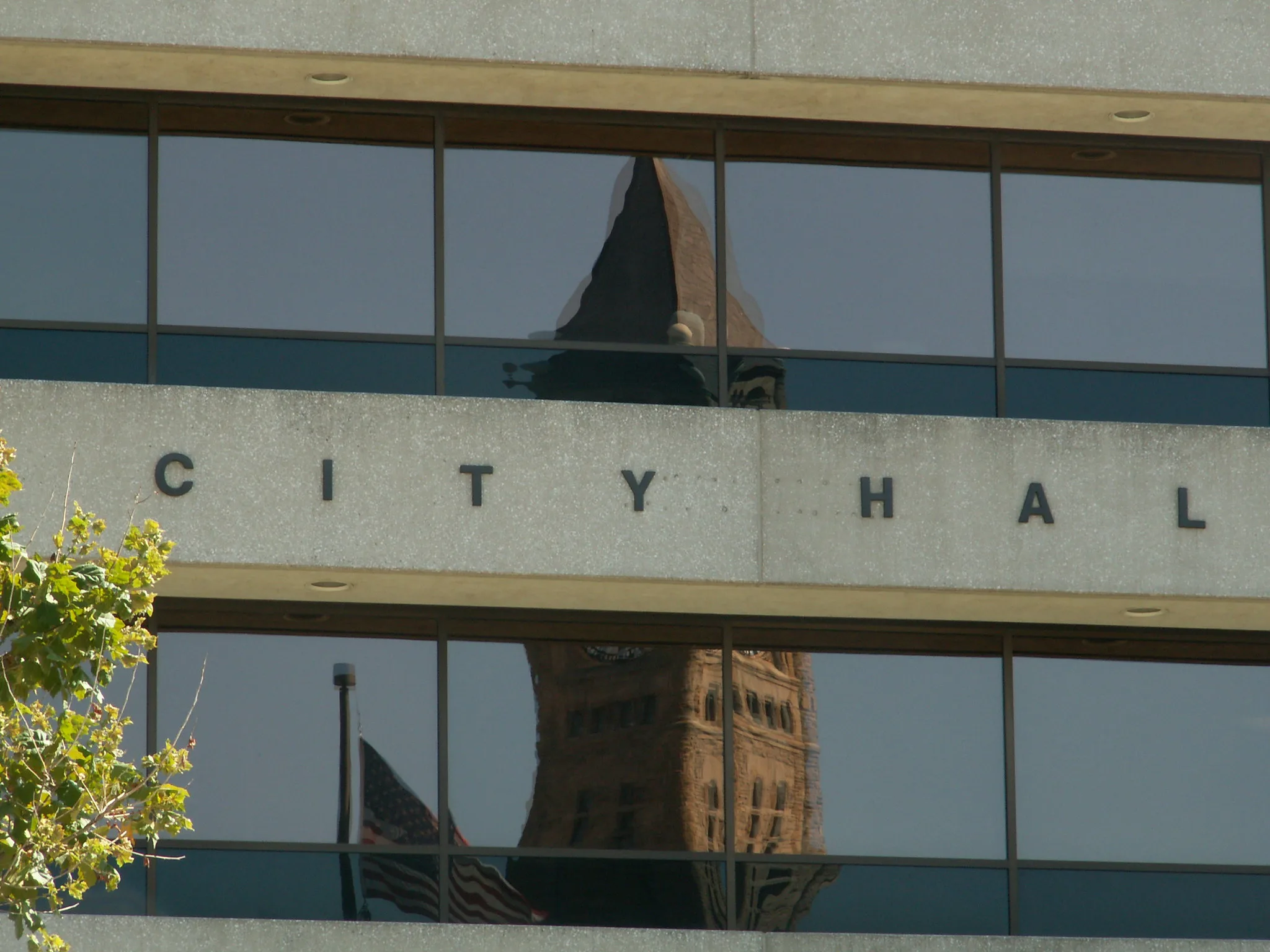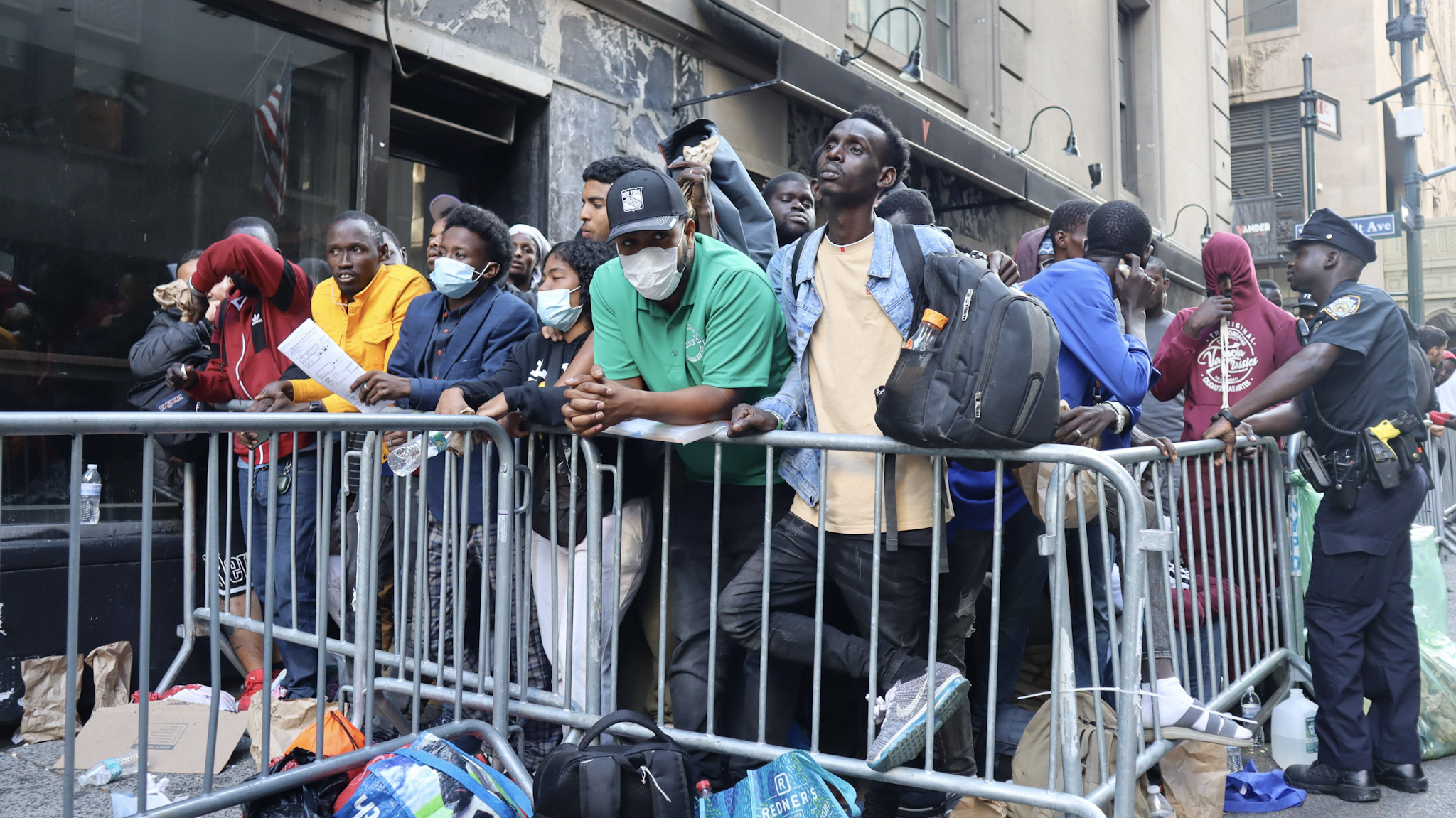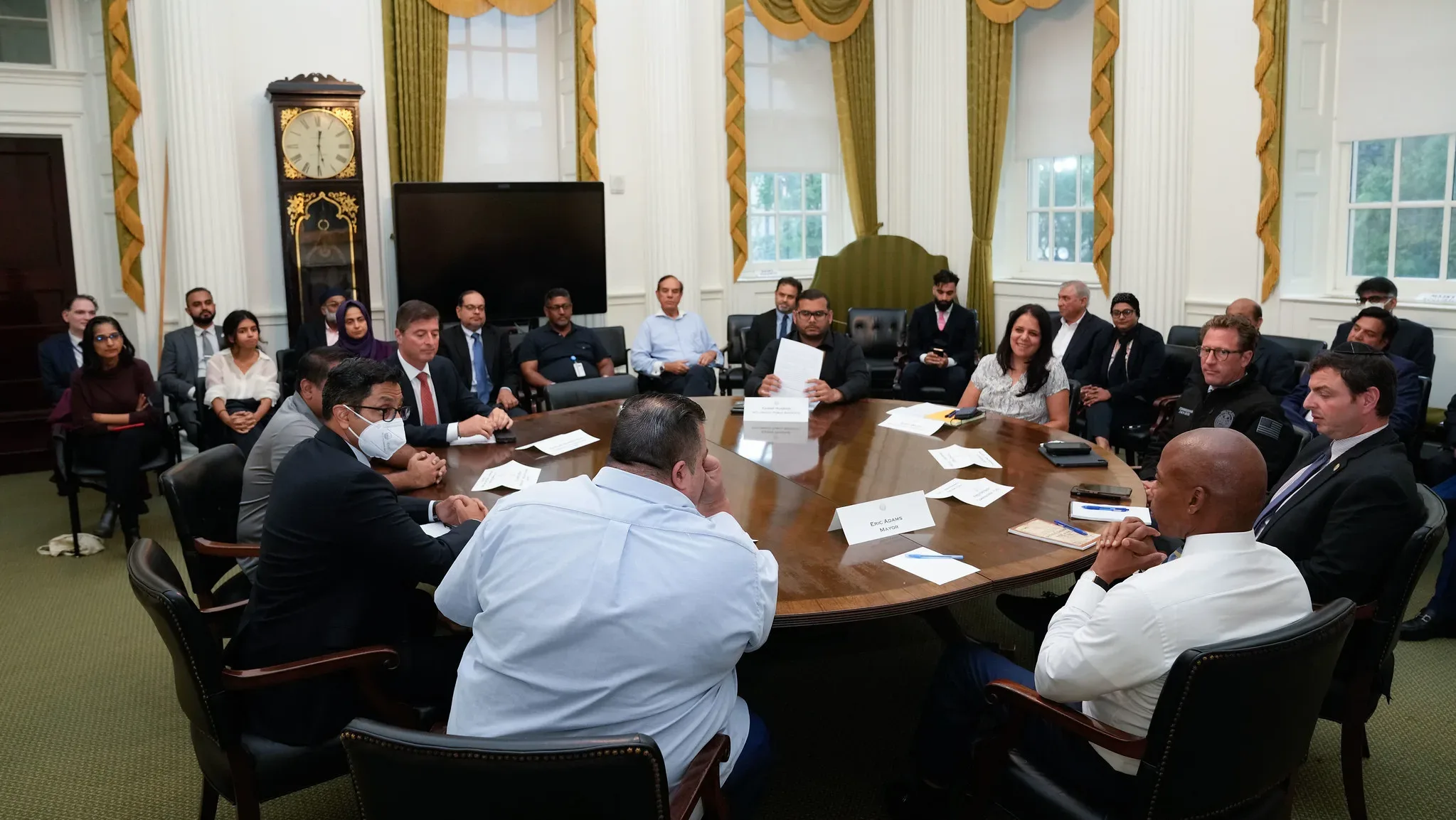New York attorney general candidate Zephyr Teachout recently set off a firestorm in right-wing circles by asserting that she would initiate prosecutions of Immigration and Customs Enforcement (ICE) personnel if elected.
The responses to her comments, which were made in a video for the outlet NowThis, ranged from angry to condescending, but have not really attempted to grapple with what such prosecutions might actually entail, and what tack Teachout would take in going after the agency. Last week, Documented sat down with the Fordham Law professor to clarify her positions.
Teachout quickly expanded her target to a second federal agency, Customs and Border Protection (CBP). ICE has recently received the bulk of the public ire on federal immigration policy, but CBP is also active in New York, particularly upstate, and has drawn criticism for setting up checkpoints and boarding buses to question travelers about their citizenship. “I’m deeply concerned about CBP, and how CBP is eroding our system,” she said.
She outlined two specific ways in which she would move to investigate and take action against immigration enforcement personnel from both agencies if she were attorney general: the first would be working with prosecutors to investigate agents who violated state laws of “general jurisdiction,” i.e. those who commit clear-cut criminal acts like sexual abuse of detainees.
“The first step you do in analysis is whether it violates state law, and there, just to be clear, local [district attorneys] are on the front lines of enforcing state criminal law, so I’d be working with local DAs,” she said.
The idea would be to conduct prosecutions in much the same way as any other person in New York can be criminally prosecuted, and she believes it’s state law enforcement, including the attorney general, who should be leading the charge on holding federal law enforcement fully accountable. “It’s really important, one, to start off clearly with the default presumption being nobody is above the law, and two, that illegal activity should never be seen as scope of employment,” she said.
Questions about scope of employment are critical for the second form of enforcement that Teachout would prioritize, which is civil litigation against immigration agents and officers through civil rights lawsuits. This could come into play in cases where ICE or CBP personnel hasn’t directly violated state law, but has allegedly violated someone’s civil rights.
Federal agents generally enjoy relative immunity from civil lawsuits while they are performing their duties, but Teachout believes that agents have acted in ways that fall outside these protections and could make them legally responsible under U.S. Code Section 1983. For example, she pointed to cases in which agents appear to continue to hold people who were ordered released by federal courts, calling that “unlawful restraint.”
Last week, a federal judge ordered a plane holding a mother and daughter being deported to turn around, and the deportation to be reversed. The mother is a plaintiff in an ongoing lawsuit. The judge also threatened to hold Attorney General Jeff Sessions in contempt. If the ICE administrators and agents carrying out the deportation knew that it would interfere with federal court proceedings, they could potentially be held liable for attempting to carry out the deportation anyway. That’s the sort of situation that might cause an Attorney General Teachout to step in.
There’s a culture within prosecutors’ offices that we have to get over, about law enforcement
Zephyr Teachout
She acknowledged that on the criminal front, prosecutions would be tough. “These may be hard cases to win in front of a jury, in the same way that cases against the police are hard,” she said. There are also unresolved questions about what, exactly, would constitute a crime under state law. Something like sexual abuse or physical assault is more obvious, but what about grayer areas, like ICE agents posing as local police officers?
Teachout said those evaluations will have to take place on “a case-by-case basis,” adding that “these questions are not new legal questions. Broadly, the question of what’s illegal and what’s not illegal, this is what courts do, figure out the lines.” If prosecutors believe a crime has been committed, she believes, they should bring the case forward and let the legal process play out.
Asked directly if, based on her understanding of public allegations made against federal immigration enforcement agents, some of them should be in jail, Teachout said “Yes, I do. There’s a culture within prosecutors’ offices that we have to get over, about law enforcement,” referring to a perceived hesitancy to file charges against law enforcement personnel.
Teachout emphasized that both criminal and civil rights actions would be partly premised on existing reports of possible wrongdoing, but would also benefit from an increase in investigations into the operations of federal immigration agents in New York more broadly.
“There’s so many problems with ICE and CBP, but it’s a total black box. We need to investigate the degree of lawlessness, and that’s important both for civil suits… and it’s also important for criminal investigations. There’s way too much we don’t know, and transparency for law enforcement is required,” she said.
Current Attorney General Barbara Underwood, who is not running in the election, and her predecessor Eric Schneiderman have brought a series of lawsuits either directly or tangentially related to immigration against the Trump administration, on questions including the administration’s attempt to end the DACA program, its implementation of a travel ban, and its attempt to include a citizenship question on the 2020 Census.
Teachout praised these “defensive” lawsuits — designed to prevent the federal government from taking actions to effectively harm immigrants — but said she would increase focus on “offensive” lawsuits, those that would aim to actively investigate President Donald Trump, his businesses, and federal agencies and operations. Some of these investigations might yield information that could be used to hold ICE and CBP accountable.
Ultimately, Teachout’s goal would be to use both the prosecutorial tools and the bully pulpit available to the state attorney general to go after federal immigration agencies. Beyond prosecutions and lawsuits, she wants to be a consistent voice of criticism of the agencies and their practices, and has already called for ICE’s immediate abolition.
“I think it’s really important to call for its abolishment, and then I’m very interested in hearing different ideas, but I gotta tell you, it’s always going to be something problematic, and it should have intense oversight, “ she said.
Though she has long had issues with the immigration enforcement system, Teachout believes the current administration and the president in particular are pushing an “ideology of immunity” that bleeds into the whole federal apparatus, especially immigration enforcement.
“What’s really dangerous, and why it’s so important for people in law enforcement to say that they will prosecute illegal behavior by ICE agents, and not treat it as presumptively immune just because they are federal officers, but rather look at the law, is because there’s nothing more dangerous to basic democratic values than an argument for immunity,” she said.
